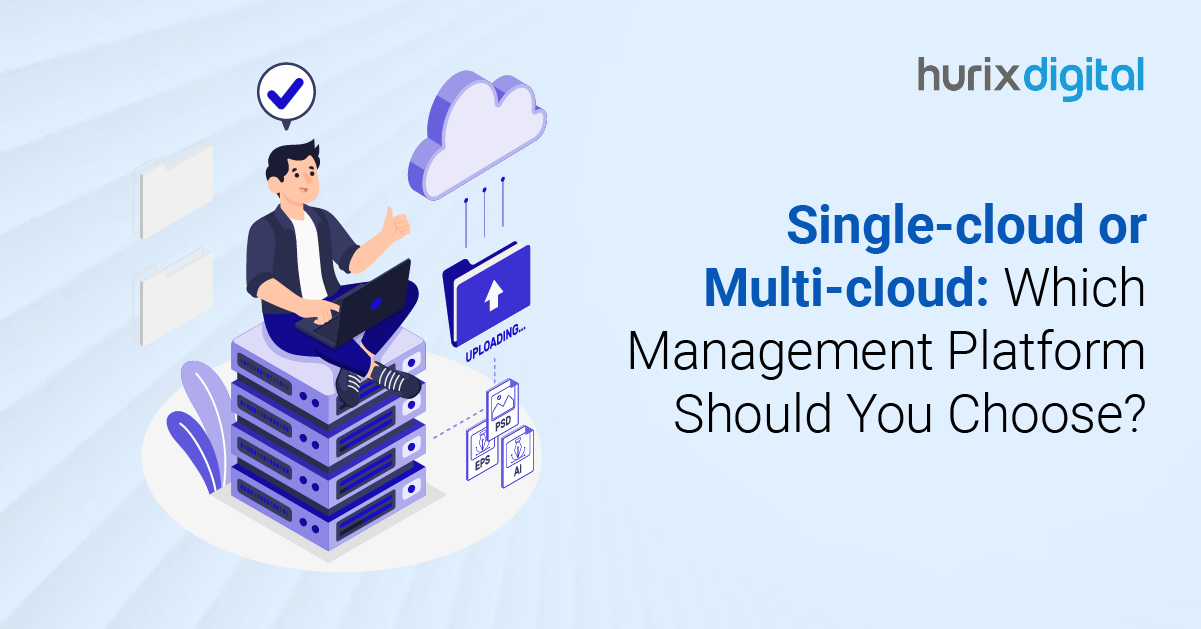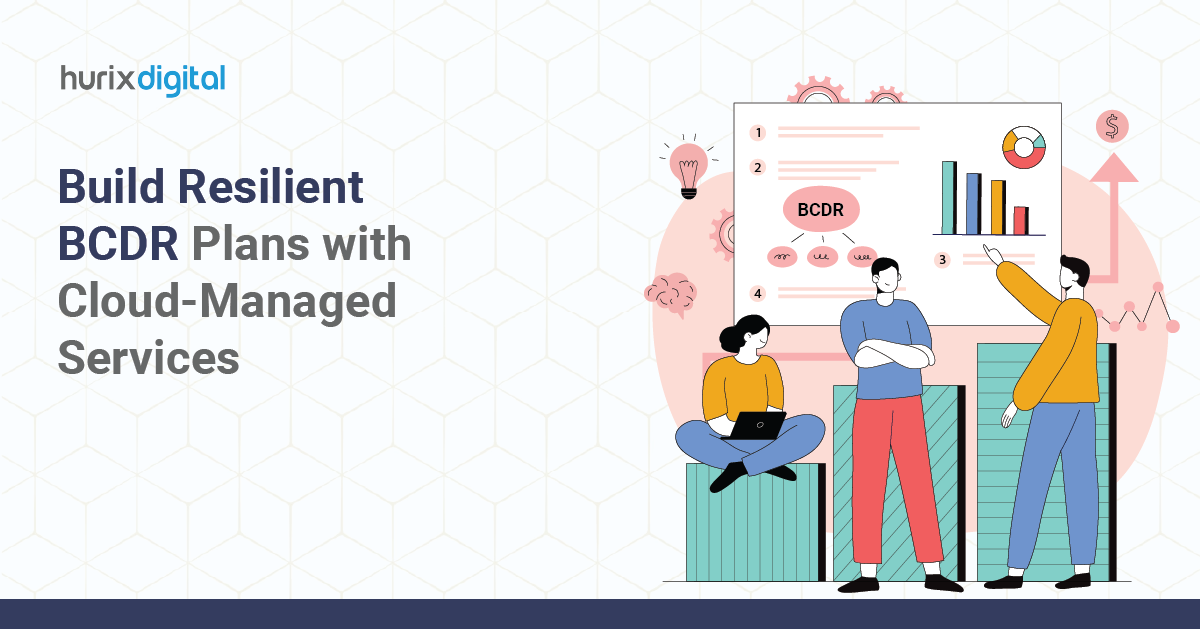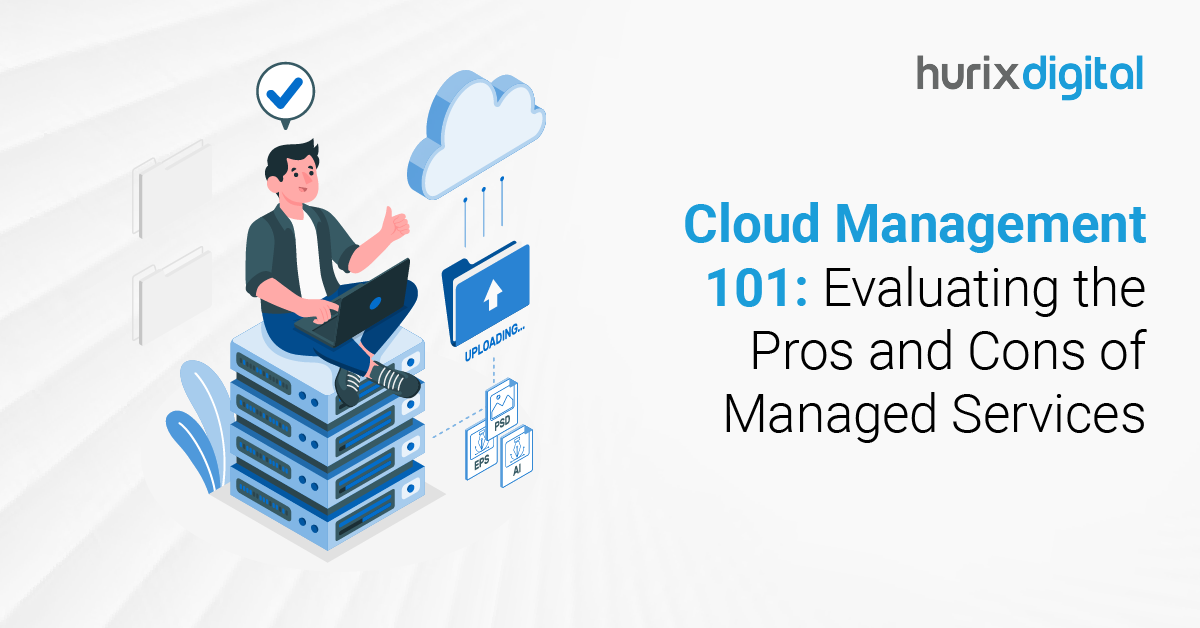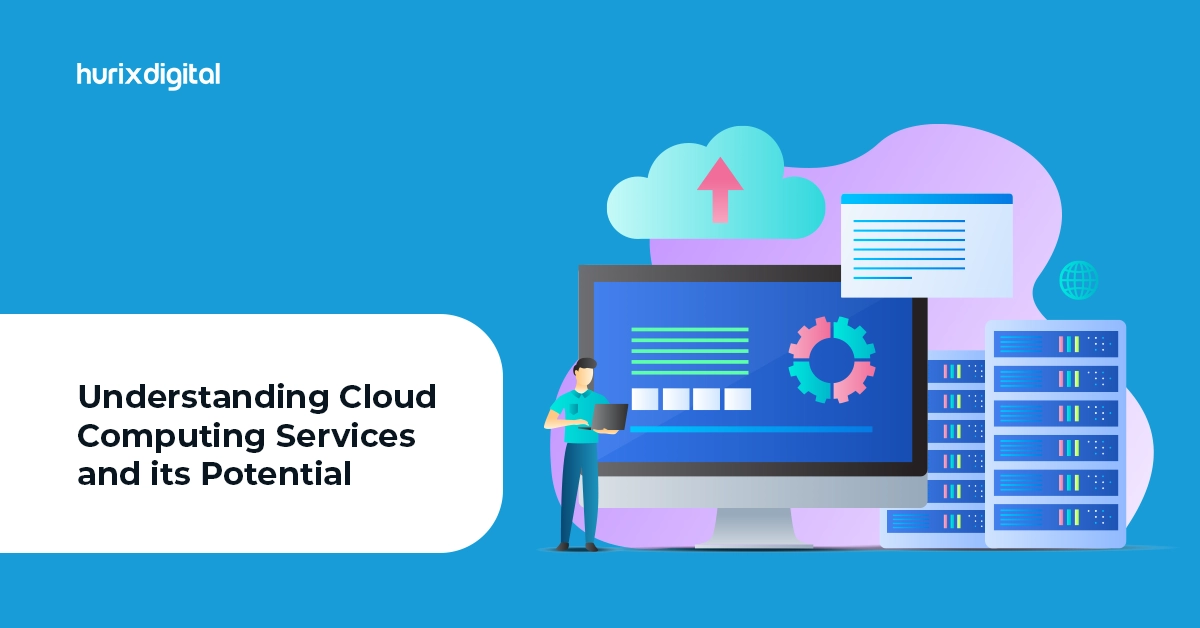
Single-Cloud or Multi-Cloud: Which Management Platform Should You Choose?
Summarize with:
The worldwide market for cloud-based managed services was valued at $137.33 billion in 2024. Organizations are moving towards cloud management platforms to streamline their daily and operational activities and increase efficiency.
With growing requirements for scalability and flexibility, choosing the right platform becomes imperative. This boils down to choosing between multi-cloud and single-cloud management platforms. Knowing how each differs, along with various benefits and drawbacks, can help you make an informed decision based on your organization’s goals and available resources.
This blog will debate these and many other aspects to devise a thorough guide for deciding which cloud management platform is right for your organization.
Table of Contents:
- Understanding Cloud Management Platforms
- What are Multi-cloud Management Platforms?
- What are Single-cloud Management Platforms?
- Multi-cloud vs. Single-cloud: Pros and Cons
- Choosing the Right Cloud Management Platform
- Final Verdict
Understanding Cloud Management Platforms
Cloud management platforms are designed to enhance a company’s cloud use. They are collections of tools to efficiently manage cloud resources, enabling organizations to monitor, automate, and govern their cloud environments effectively.
Whether single-cloud or multi-cloud provider arrangements, they help smooth operations, reduce costs, improve performance, and provide many other multi-cloud and single-cloud advantages. They are crucial for modern IT infrastructure since they give the business full visibility and control of cloud resources, enabling it to harness the power of the cloud.
So, let us understand how single-cloud and multi-cloud platforms work.
Also Read: Cloud Management 101: Evaluating the Pros and Cons of Managed Services
What are Multi-cloud Management Platforms?
The multi-cloud management platform allows an enterprise to operate simultaneously with several services provided by different providers. Such a strategy brings great flexibility and resiliency; a business can use just the best from every provider.
Not being locked into one vendor enables enterprises to optimize cloud strategies for many needs and risks.
Benefits of Using Multi-cloud Platforms
Multi-cloud management would let organizations optimize performance since individual cloud providers have unique areas of expertise. Using the best cloud management platforms for particular workloads secures the best performance at optimal costs.
The most significant advantage of multi-cloud management is the elimination of vendor dependencies. Multi-cloud strategies reduce dependence on any single provider, minimizing the risk of being bound to one vendor, which would be detrimental to business operations if that vendor suffered an outage or raised its prices, among other things.
Since workloads are placed across multiple clouds, organizations can easily achieve more redundancy and uptime, as the failure of one provider will not impact the whole infrastructure.
What are Single-cloud Management Platforms?
Single-cloud management platforms are designed to manage resources within a single provider’s ecosystem. Their simplicity makes management much more manageable, and it can also mean that companies often integrate more with that provider’s tools and services.
Benefits of Using Single-Cloud Platforms
A single cloud strategy is all about maximizing the many benefits of a chosen cloud provider. The approach will, therefore, be how best to use these providers’ native tools and services to improve performance and efficiency. Key considerations include providers’ offerings and the organizational goals they may be aligned with.
Therefore, developing a single cloud strategy would mean reviewing the offerings provided by the vendors against those goals, aligning them, and relentlessly leveraging native tools to monitor and adjust the strategy toward better outcomes.
This strategy is effective for less complex operations or those looking to squeeze every little bit of efficiency from within a single provider. The advantages associated with single cloud management are obvious. One of the major multi-cloud benefits is easier management; managing resources within one cloud provider’s ecosystem is simpler.
Multi-cloud vs. Single-cloud: Pros and Cons
The pros and cons of multi-cloud and single-cloud management platforms must be your basis of choice between the two approaches. The multi-cloud strategy offers flexibility, resilience, and optimized performance but increases complexity, integration challenges, and related costs due to specialized management tools and expertise.
In contrast, single-cloud management simplifies operations, reduces costs, and enables tight integration within a single provider’s ecosystem.
On the other side, it opens one to vendor lock-in dangers, limited flexibility, and a wide variety of issues or outages affecting only one provider.
| Multi-Cloud | Single-Cloud | |
|---|---|---|
| Pros | ||
| Flexibility | High flexibility | Simplified operations |
| Resilience | Increased resilience | Lower costs |
| Performance | Optimized performance | Tight integration |
| Cons | ||
| Complexity | Higher complexity | Risk of vendor lock-in |
| Integration | Integration challenges | Limited flexibility |
| Costs | Higher costs | Vulnerability to provider issues |
Choosing the Right Cloud Management Platform
When choosing the right cloud management platform, you must consider your organization’s unique requirements, goals, and resources. Such factors involve business needs, budget, scalability, compliance, expertise, and vendor support. This has to be based on assessing what your organization requires in terms of performance, scalability, and compliance.
The costs of each option must be reviewed in contrast to the potential savings and eventual long-term financial implications. Ensure the chosen platform will scale with your business through growth and other changes. It is important to check the regulatory and security requirements that the platform must comply with.
Another vital issue is what in-house expertise would be available to manage the platform and whether extra training or staff recruitment may be required. Equally important, however, is the support and resources available from the cloud provider, including customer service and technical support.
Also Read: Top 10 Cloud Management Tools for Your Business
Final Verdict
The choice between multi-cloud and single-cloud management platforms can make all the difference in fostering an organization’s cloud strategy. Multi-cloud solutions offer flexibility, resiliency, and performance optimization; hence, they are the solution for any business with diverse and complex requirements.
However, they usher in higher complexity and costs. Single-cloud platforms simplify operations and cut down on costs, but they limit flexibility and increase the chances of vendor lock-in.
Hurix Digital can help you leverage advanced infrastructure. We help businesses navigate these choices. Whether you prefer the versatility of multi-cloud or the efficiency of a single cloud, we offer customized cloud management solutions to ensure security, excellence of operations, and seamless integration with emerging technologies like AI and ML.
See how Hurix Digital can help you determine the right cloud management platform for your organization. Connect with our team today!
Summarize with:

Vice President and Strategic Business Unit Head – Cloud Services
A top technology management voice on LinkedIn with 20 Years of experience in Information Technology, Cloud Services, Digital Transformation, Application Modernization, Managed Services, IT Security Engineering and Operations Management. An avid technology Leader, Leadership Speaker, Author & Coach.
 Upcoming Masterclass | Build an Army of Brand Evangelists using Training & Development | November 20th, 8:30 AM PDT | 11:30 AM EDT | 10:00 PM IST
Upcoming Masterclass | Build an Army of Brand Evangelists using Training & Development | November 20th, 8:30 AM PDT | 11:30 AM EDT | 10:00 PM IST





